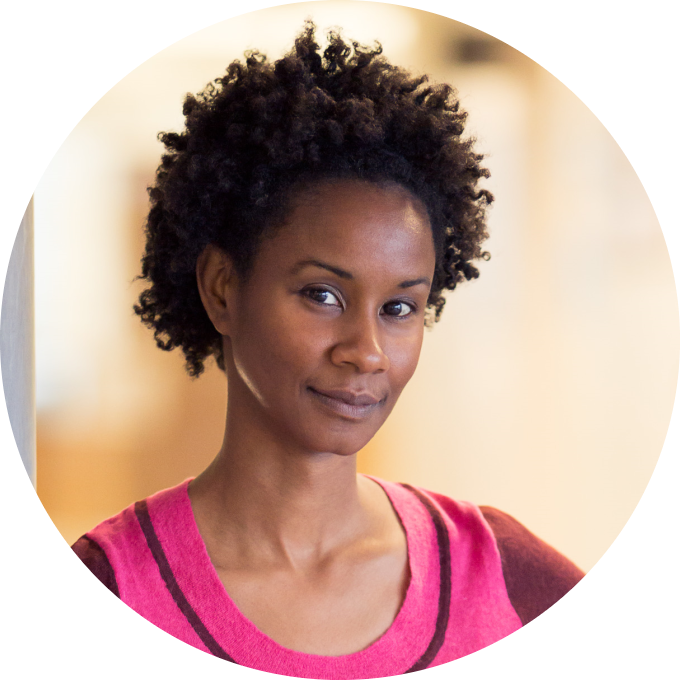Talking about sex should not be as taboo
as saying Voldemort’s name or calling out Macbeth in a theatre. This is especially true for those who have genuine questions or concerns regarding sex, but are unable to comfortably ask someone else for answers. This is where making opportunities for people to learn about sex in a safe environment or format is important. Through different avenues, Nadine Thornhill shares her intrigue for sex with the virtual and North American community.
Rhey: What is it about sex that interests you?
Nadine: The commodified version of human sexuality that the media sells us is so prevalent, and many of us – myself included – spend at least some portion of our lives thinking that sexuality is thin, Eurocentric, able-bodied, young people, wordlessly falling on top of each other and cycling through a very limited repertoire of sex acts and then having an orgasm.
The reality that sexuality is infinitely more diverse is what fascinates me. People of every body type, every ethnicity, every age, every identity experience their sexuality in myriad ways. Much of it doesn’t even involve having sex, but even when it does, what constitutes sex is equally vast and varied.
The ways that people express and experience sexuality is endlessly fascinating to me. There’s always something new to learn and I love that.
Rhey: Why do you refer to yourself as ‘ your friendly neighbourhood sex educator’?
Nadine: I think something I do well as a sex educator is talk to folks about topics they may find intimidating, or taboo in an easily relatable way. I try really hard to create spaces and opportunities where people feel safe and supported as they share their own thoughts about sexuality. Essentially I try to make conversations about sex and sexuality as easy, accessible and friendly as I can. Hence, your friendly neighbourhood sex educator!
Rhey: What was sex education like for you during your childhood?
Nadine: At home, my dad didn’t really talk to me about sex at all, although when I was a teenager, he definitely pushed me to be independent and make my own decisions when it came to dating and choosing partners, which I really appreciate looking back. My mom was more open. She always answered questions I had about sex. When I was 11, she gave me her copy of “Our Bodies, Ourselves,” which is how I learned about clitoral stimulation.
In school, sex-ed was pretty clinical. We learned about how bodies changed during puberty. I went to elementary school during the 1980s. We started sex-ed was at the height of the AIDS epidemic, so there was a lot of dire conversation about the dangers of sex – especially unprotected sex and sex with multiple partners. Virtually everything was focused on avoidance – avoiding sexually transmitted infections, avoiding pregnancy, and ideally avoiding sex altogether.
I do remember learning the word masturbation in seventh grade. It was funny because I’d been doing it all my life as a nice, self-soothing ritual before bed. But I hadn’t known there was a name for it, and I hadn’t really understood it as sexual, so that was a fun new revelation.
Rhey: Which of your workshops do you enjoy facilitating the most?
Nadine: I developed a workshop on Safer Sexting a couple of years back that I love delivering. It’s for parents and teens and over the course of the workshops. The adults are often worried about their teens and the potential risks sexting can pose. Meanwhile, a lot of the teens have a good grasp on what those risks are, but they see potential benefits, like using sexting as a way to discuss their needs and boundaries with partners.
Part of the workshop involves helping adults and teens share their perspectives, which often leads to some really insightful, productive conversation. I always learn something new when I run that workshop, which is one of my favourite things about being an educator.
Rhey: What advice would you give to a couple who have differing sexual drives?
Nadine: Having different sex drives is extremely common in relationships, simply because we’re talking about different people with different bodies. Something I often recommend to folks is focusing on self-pleasure, assuming masturbation aligns with their personal values. Being able to satisfy ourselves sexual, particularly if we’re the partner with the more intense sexual drive, takes pressure off our partner and gives us complete control over our sexual pleasure.
Rhey: Is sexual identity a choice or something you are born with?
Nadine: Sexual identity encompasses so many aspects of our humanity: our gender, our sexual orientation, our moral, ethical and sometimes religious beliefs, our anatomy, our body image, our desires, our boundaries…I could go on and on.
I believe some aspects of our sexual identity are inherent. We have certain anatomical features at birth. For example, many people describe their sexual orientation or their gender identity as something they’re born with. Most of us have some choice about how we treat and use our bodies, how we express our gender or act on our sexual orientation.
Sexual identity is also influenced by things that happen to us, and the way others perceive us. I move through the world as a Black, able-bodied, thin cisgender woman. Those identities influence the way people respond to me as a sexual person, and those interactions, in turn, have some effect on my own relationship to my sexuality.
I think that we sometimes when we say a person is born with a certain desire or identity, we’re trying to defend it’s validity. But I believe that the sexual identities and expressions we choose are just as valid as the ones we are born with.
Website: http://www.nadinethornhill.com/
Youtube: https://www.youtube.com/channel/UCJqQvHjzDtjLEu9IjpUh68Q

Note: 1. Nadine Thornhill is currently practicing in Toronto, Ontario. (Canada)
2. Discovered through Happy Healthy Women.
